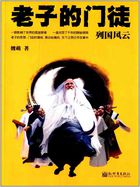Soc. The second principle is that of division into species according to the natural formation, where the joint is, not breaking any part as a bad carver might. Just as our two discourses, alike assumed, first of all, a single form of unreason; and then, as the body which from being one becomes double and may be divided into a left side and right side, each having parts right and left of the same name-after this manner the speaker proceeded to divide the parts of the left side and did not desist until he found in them an evil or left-handed love which he justly reviled; and the other discourse leading us to the madness which lay on the right side, found another love, also having the same name, but divine, which the speaker held up before us and applauded and affirmed to be the author of the greatest benefits.
Phaedr. Most true.
Soc. I am myself a great lover of these processes of division and generalization; they help me to speak and to think. And if I findany man who is able to see ”a One and Many” in nature, him I follow, and ”walk in his footsteps as if he were a god.” And those who have this art, I have hitherto been in the habit of calling dialecticians; but God knows whether the name is right or not. And I should like to know what name you would give to your or to Lysias" disciples, and whether this may not be that famous art of rhetoric which Thrasymachus and others teach and practise? Skilful speakers they are, and impart their skill to any who is willing to make kings of them and to bring gifts to them.
Phaedr. Yes, they are royal men; but their art is not the same with the art of those whom you call, and rightly, in my opinion, dialecticians:-Still we are in the dark about rhetoric.
Soc. What do you mean? The remains of it, if there be anything remaining which can be brought under rules of art, must be a fine thing; and, at any rate, is not to be despised by you and me. But how much is left?
Phaedr. There is a great deal surely to be found in books of rhetoric?
Soc. Yes; thank you for reminding me:-There is the exordium, showing how the speech should begin, if I remember rightly; that is what you mean-the niceties of the art?
Phaedr. Yes.
Soc. Then follows the statement of facts, and upon that witnesses;thirdly, proofs; fourthly, probabilities are to come; the great Byzantian word-maker also speaks, if I am not mistaken, of confirmation and further confirmation.
Phaedr. You mean the excellent Theodorus.
Soc. Yes; and he tells how refutation or further refutation is to be managed, whether in accusation or defence. I ought also to mention the illustrious Parian, Evenus, who first invented insinuations and indirect praises; and also indirect censures, which according to some he put into verse to help the memory. But shall I ”to dumb forgetfulness consign” Tisias and Gorgias, who are not ignorant that probability is superior to truth, and who by: force of argument make the little appear great and the great little, disguise the new in old fashions and the old in new fashions, and have discovered forms for everything, either short or going on to infinity. I remember Prodicus laughing when I told him of this; he said that he had himself discovered the true rule of art, which was to be neither long nor short, but of a convenient length.
Phaedr. Well done, Prodicus!
Soc. Then there is Hippias the Elean stranger, who probably agrees with him.
Phaedr. Yes.
Soc. And there is also Polus, who has treasuries of diplasiology,and gnomology, and eikonology, and who teaches in them the names ofwhich Licymnius made him a present; they were to give a polish.
Phaedr. Had not Protagoras something of the same sort?
Soc. Yes, rules of correct diction and many other fine precepts; for the ”sorrows of a poor old man,” or any other pathetic case, no one is better than the Chalcedonian giant; he can put a whole company of people into a passion and out of one again by his mighty magic, and is first-rate at inventing or disposing of any sort of calumny on any grounds or none. All of them agree in asserting that a speech should end in a recapitulation, though they do not all agree to use the same word.
Phaedr. You mean that there should be a summing up of the arguments in order to remind the hearers of them.
Soc. I have now said all that I have to say of the art of rhetoric: have you anything to add?
Phaedr. Not much; nothing very important.
Soc. Leave the unimportant and let us bring the really important question into the light of day, which is: What power has this art of rhetoric, and when?
Phaedr. A very great power in public meetings.
Soc. It has. But I should like to know whether you have the same feeling as I have about the rhetoricians? To me there seem to be a great many holes in their web.
Phaedr. Give an example.
Soc. I will. Suppose a person to come to your friend Eryximachus, or to his father Acumenus, and to say to him: ”I know how to apply drugs which shall have either a heating or a cooling effect, and I can give a vomit and also a purge, and all that sort of thing; and knowing all this, as I do, I claim to be a physician and to make physicians by imparting this knowledge to others,”-what do you suppose that they would say?
Phaedr. They would be sure to ask him whether he knew ”to whom” he would give his medicines, and ”when,” and ”how much.”
Soc. And suppose that he were to reply: ”No; I know nothing of all that; I expect the patient who consults me to be able to do these things for himself?”
Phaedr. They would say in reply that he is a madman or pedant who fancies that he is a physician because he has read something in a book, or has stumbled on a preion or two, although he has no real understanding of the art of medicine.
Soc. And suppose a person were to come to Sophocles or Euripides and say that he knows how to make a very long speech about a small matter, and a short speech about a great matter, and also a sorrowful speech, or a terrible, or threatening speech, or any other kind of speech, and in teaching this fancies that he is teaching the art of tragedy-?
Phaedr. They too would surely laugh at him if he fancies that tragedy is anything but the arranging of these elements in a manner which will be suitable to one another and to the whole.















